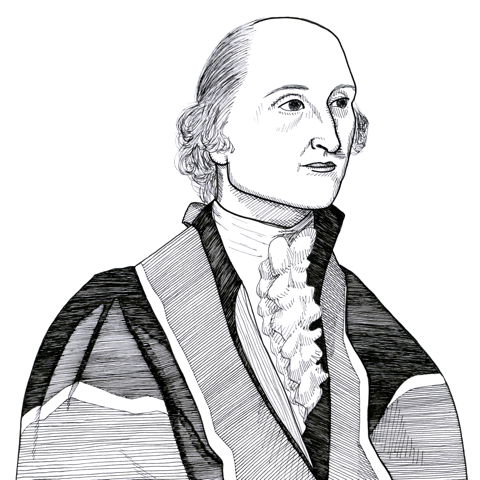
John Jay on the pretended as well as the just causes of war (1787)
Found in: The Correspondence and Public Papers of John Jay, vol. 3 (1782-1793)
One of the authors of the Federalist Papers and the first Chief Justice of the U.S., John Jay (1745-1829), warns about the dangers of a nation giving just cause to other nations for beginning hostilities, such as personal ambition and glory, revenge, or private benefit:
War & Peace
But the safety of the people of America against dangers from foreign force depends not only on their forbearing to give just causes for war to other nations, but also on their placing and continuing themselves in such a situation as not to invite hostility or insult; for it need not be observed, that there are pretended as well as just causes of war.
It is too true, however disgraceful it may be to human nature, that nations in general will make war whenever they have a prospect of getting anything by it; nay, that absolute monarchs will often make war when their nations are to get nothing by it, but for purposes and objects merely personal, such as a thirst for military glory, revenge for personal affronts, ambition, or private compacts to aggrandize or support their particular families or partisans.